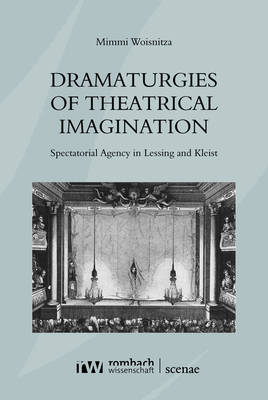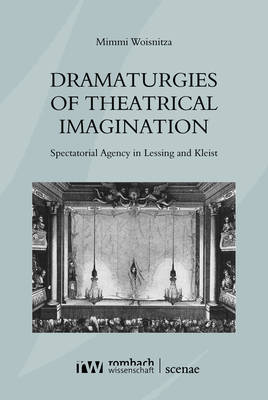
- Afhalen na 1 uur in een winkel met voorraad
- Gratis thuislevering in België vanaf € 30
- Ruim aanbod met 7 miljoen producten
- Afhalen na 1 uur in een winkel met voorraad
- Gratis thuislevering in België vanaf € 30
- Ruim aanbod met 7 miljoen producten
Zoeken
€ 62,95
+ 125 punten
Omschrijving
The study examines an aspect of German theatre history that is relevant also in the context of the current engagement with theatrical phenomenology and reception. The historical, discursive, and political situating of canonical dramas shows that "dramatic theater" itself is to be regarded as part of cultural and theatrical practice. The dramas of Lessing and Kleist operate with a broad spectrum of theatrical techniques (such as teichoscopy, ekphrasis, masquerade and mise en abyme) that seek to promote, shape and direct the imaginative participation of their implied audiences. In addition to presenting imagination on the plot level, the dramas reflect their own medial status by staging the consequences and the reformation of "false" imaginative investments.
Specificaties
Betrokkenen
- Auteur(s):
- Uitgeverij:
Inhoud
- Aantal bladzijden:
- 289
- Taal:
- Engels
- Reeks:
- Reeksnummer:
- nr. 21
Eigenschappen
- Productcode (EAN):
- 9783968216423
- Verschijningsdatum:
- 30/10/2020
- Uitvoering:
- Paperback
- Formaat:
- Trade paperback (VS)
- Afmetingen:
- 150 mm x 224 mm
- Gewicht:
- 461 g

Alleen bij Standaard Boekhandel
+ 125 punten op je klantenkaart van Standaard Boekhandel
Beoordelingen
We publiceren alleen reviews die voldoen aan de voorwaarden voor reviews. Bekijk onze voorwaarden voor reviews.











